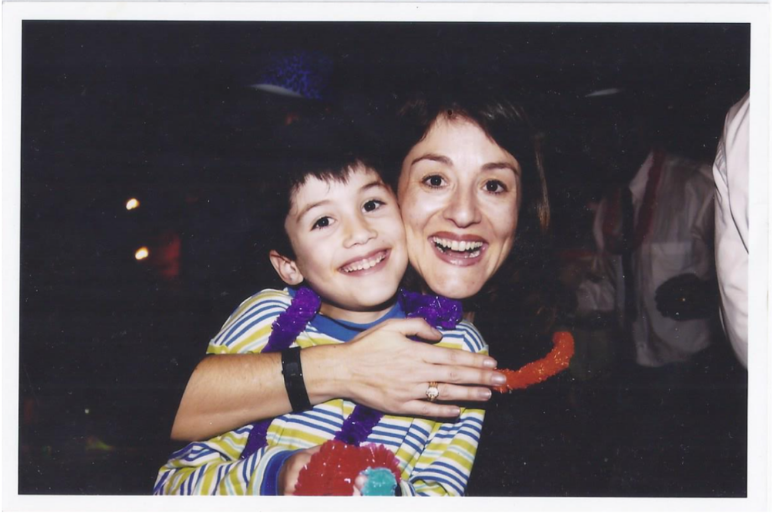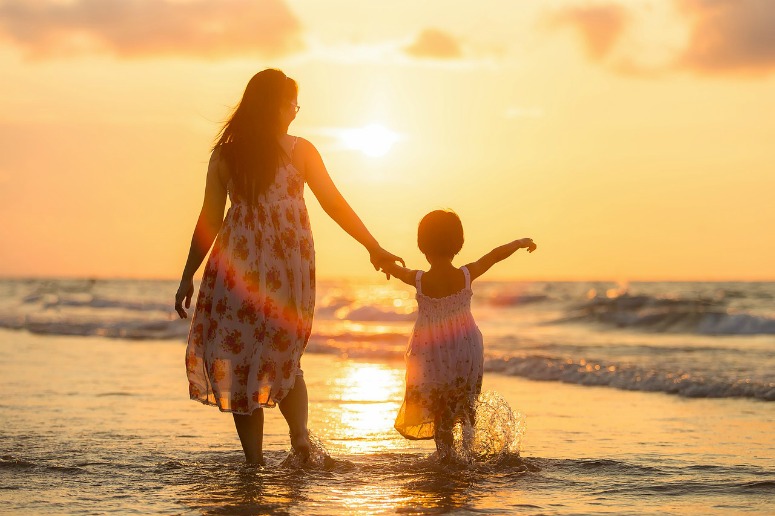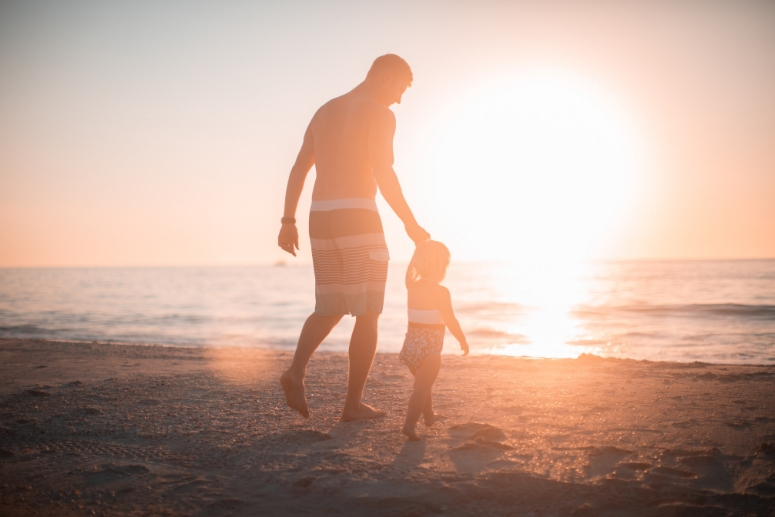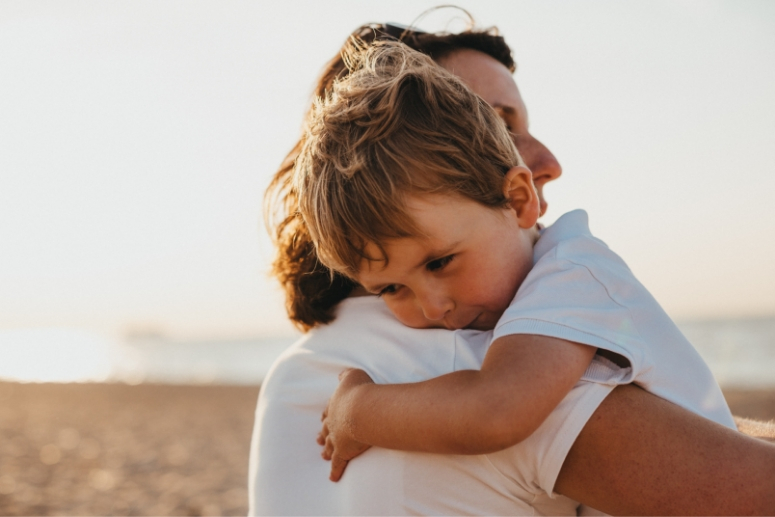
I have always considered myself an honorary member of the LGBTQ tribe. I was raised in an inclusive, liberal, environment and never really understood why different was a bad thing. We are all a little different in our own ways. It’s what makes life interesting.
When and where I grew up people assumed you were a Christian of some sort unless you told them otherwise. I remember an interaction with a classmate in my first year of middle school. There were 5-6 feeder schools and a lot of kids I didn’t know. Many of them had never experienced the ‘real world’ or been taught that not everyone was like them.
It was people like this who made me afraid for my children. I am Jewish. In pretty much the entire planet, my kids and I are seen as other. I am a parent. As a parent, I will worry.
When my son came out to me, I didn’t worry about him. It was my turn to worry about the “other”.
Hitting Back
When I was 14-years-old, I was walking to class. I passed by an open locker, where a bunch of boys were hanging out. Without notice, a boy grabbed my head. Pinned me under his arm, he quickly checked my head for horns. “I thought Jews were supposed to have horns?” he asked laughing. Having two brothers of my own, I used my minimal knowledge of physics and combined it with life experience. I shoved him into his locker, making him lose his grip on me, and his balance, at the same time.
He yelled after me that he was going to tell the principal. The empty threats were drowned out by his friends laughing and taunting him. They asked him if he was afraid of a little girl. They teased him until I was out of earshot. I was little and quite satisfied with the way the incident turned out.
No one told had me that Jews were supposed to have horns and a tail! I had never heard anything like that before. It seemed so strange to me that someone whom I had never met and didn’t know any Jews would behave like that.
Then I learned about the Holocaust.
And understood the global implications of hating a particular group of people. In 1939 there were approximately 17 million Jews worldwide. Today worldwide there are approximately 15 million. That means after more than 70 years the Jewish population has still not completely rebounded. Perhaps by 2050, a full hundred years after the Holocaust, we’ll be back to where we were.
The LGBTQ community was attacked in an equally vicious manner during Hitler’s reign.
Prejudice is most often based on ignorance. Disliking a whole community that you have had no personal contact with is primitive, shortsighted, and dangerous.
All kinds of hate are on the rise in the world today. Apparently, it’s okay to hate your neighbor.
When in modern times has it been okay to openly hate someone new to your country, people of color, women, anyone connected to the LBGTQ community, and simply anyone you consider to be “other”. It is unnerving to see rights being stripped of certain groups.
To all of you fighting for change, keep your chin up. Good always prevails. (Tweet it!)
“That’s Gay”
I remember people using the terms “queer” and “homo” to taunt other boys, hoping to anger them and get a reaction. It was used behind their back if they liked music, were involved in gymnastics, or some other silly thing. Those same young monsters would call a girl a dyke if she wasn’t interested in them, didn’t want to go out with them, kiss them, or dress the way they thought a girl shouldn’t.
It is no surprise that no one was out of the closet, so to speak, in our social group. Not until after high school anyway.
My prom date was gay. There was no discussion about it. We became friendly while singing in choir together and he was a good friend. It was a relief that there wasn’t any sexual tension. We sat back and watched the silly going-ons amongst our little group of friends. He is still a friend of mine today and he has been with the same partner as long as any of my straight friends.
52 ways to move towards joy after divorce
Sign-up to receive a printable action plan for embracing your life
and letting go of pain after divorce
[magicactionbox id=994]
In college, I became attached to a Fraternity. A “boyfriend” who came out to me after college was the president of his fraternity. We worked in the same mall in the summer and hung around together before, during and after work. He was bright and funny and we got along really well. I was invited home to meet his parents, they were lovely. He drank more than he should have. Probably, because his inside life didn’t match his outside. He’s been sober for decades and is in a loving relationship with a career he enjoys and where he excels.
Sensing a pattern here? In my experience, gay men make the best friends and have allowed me to be who I am. I have to point out, this is a rarity in my life.
Priorities
In my 20’s I moved to San Francisco. The only prerequisite of finding a job was a view of the Bay. People assured me I wouldn’t find anyone to date because of the city’s large gay population. It wasn’t an issue and I loved the atmosphere of the city. I marched in the Gay Pride Parade and never missed Halloween in the Castro.
The first Halloween I was there, I didn’t expect full frontal nudity or the mass of bodies. Needless to say, it pushed me a bit out of my comfort zone.
Another night, I was accompanying a handsome friend into a bar. It took reaching the dimly lighted dance floor to realize I was the only woman in the place. There as his escort, to keep the men away. The same friend took me to a party that turned out to be a wake which a friend of his was throwing before his own inevitable death from AIDS.
This was the late 80’s early 90’s and during the beginning of the American AIDS epidemic. At that time, AIDS was a death sentence. The medical community had just given the disease a name. So many people died. The quilt of people lost to this terrible disease kept painfully growing.
Full Circle
When our children were 13 and 15, my husband and I separated. Our son, who was living with me at the time, told me he was gay. He said now, laughing, I would have something besides the divorce to worry about. My son worrying about me, worrying about him.
I wasn’t worried, just a little sad. Not at the fact that he was gay but that some people would judge him differently because he was gay.
The moment he fell asleep, I frantically dialed a few of my friends who had come out themselves and asked them for their advice. I told the story over and over again about what I said to my son.
“There is nothing you could ever say or do that would make me love you any less.”
I do not know any parents who want their kids to be “different.” In my practice, I have helped a few families navigate their children’s otherness. Once we realize that we are all “other” and all feel different in some way there is space to come together and begin a dialogue.
My son asked me not to tell his father yet. Three months later, I did. It was a rough year for our little family but I am happy to say that nine years later, our children are very close. There are friends that we have lost along the way due to intolerance. Other friends have become closer. As we begin PRIDE Month and the 50th anniversary of the Stonewall uprising, I am happy to officially be part of the team. Are you?
Be kind to yourself.

52 ways to move towards joy after divorce
Sign-up to receive a printable action plan for embracing your life
and letting go of pain after divorce
[magicactionbox id=994]










